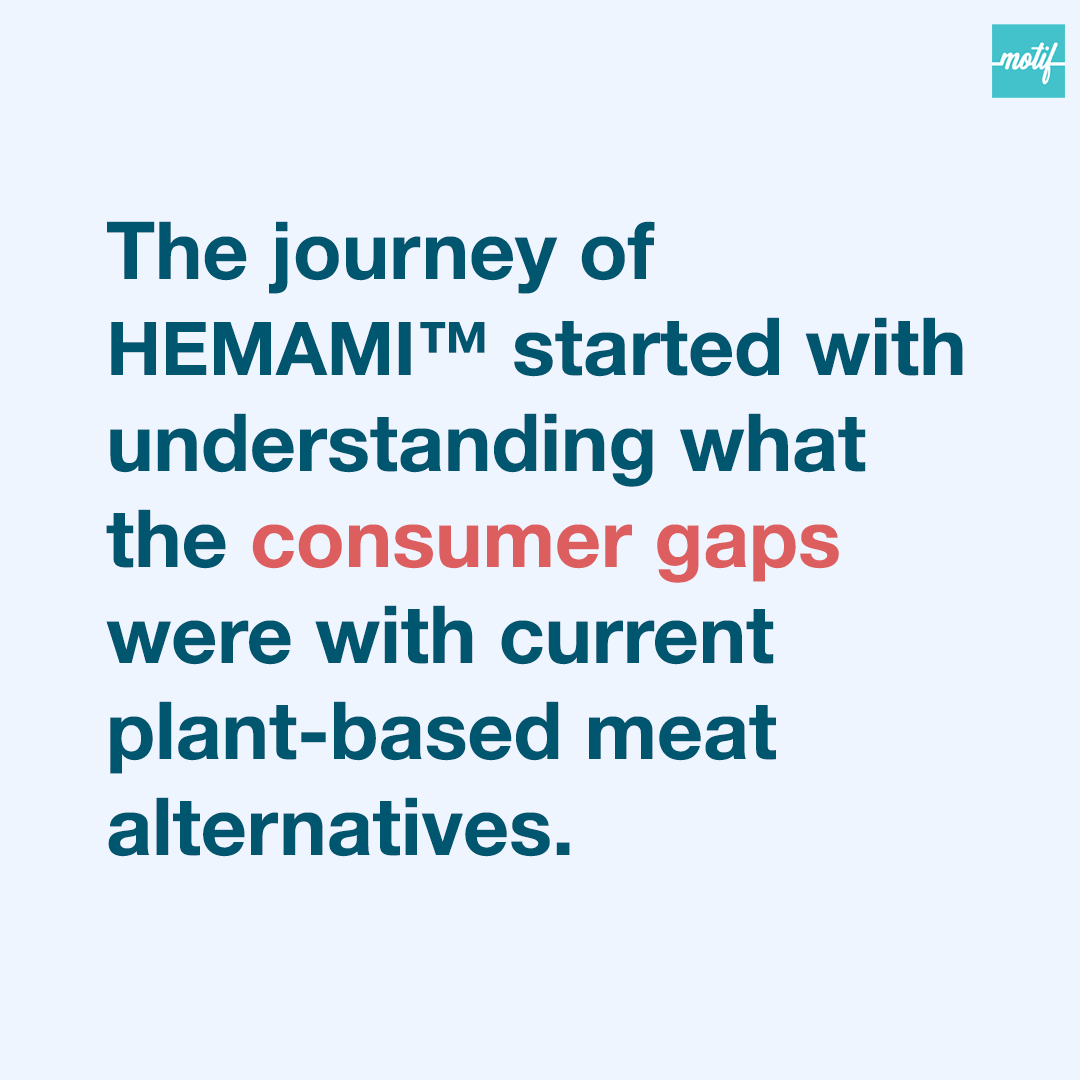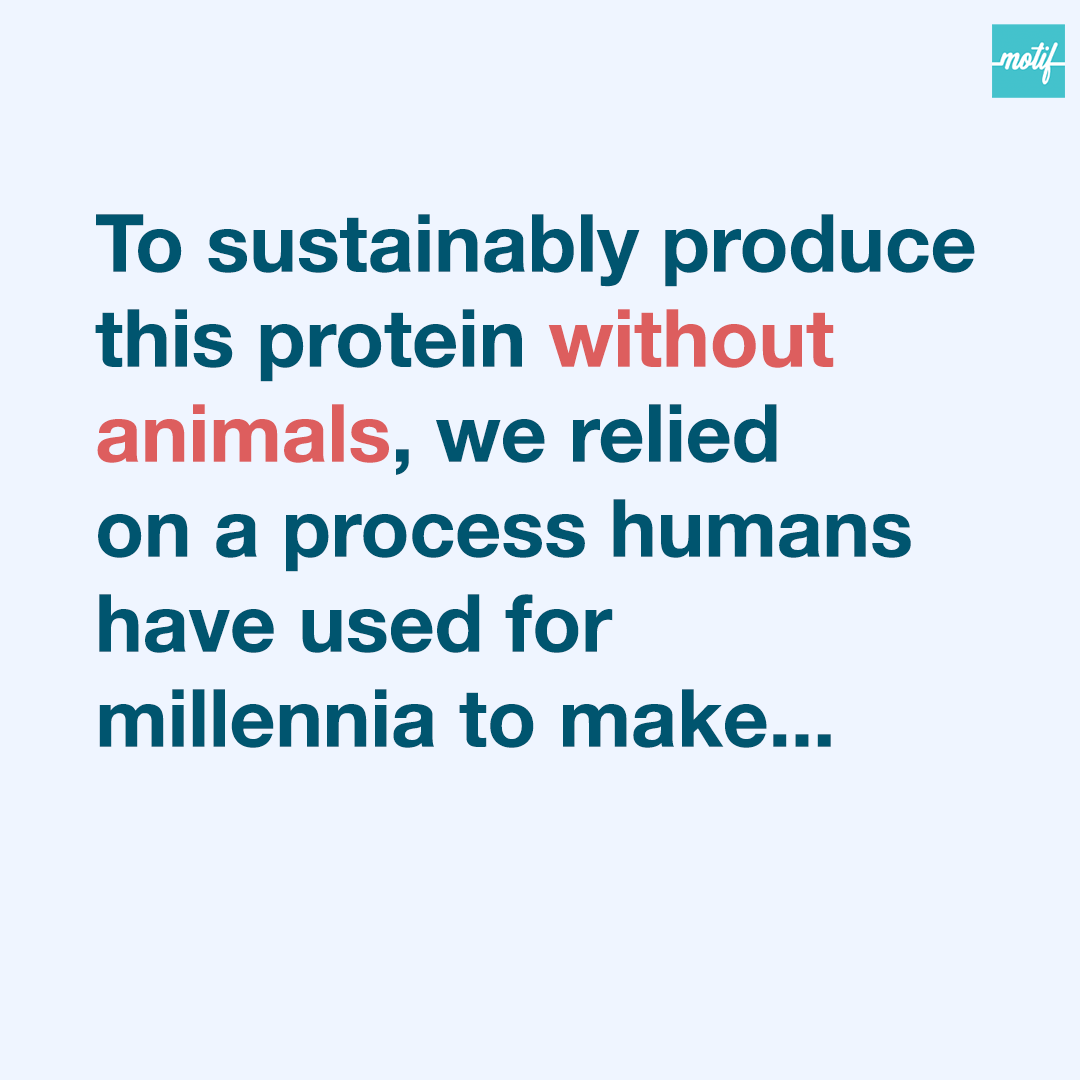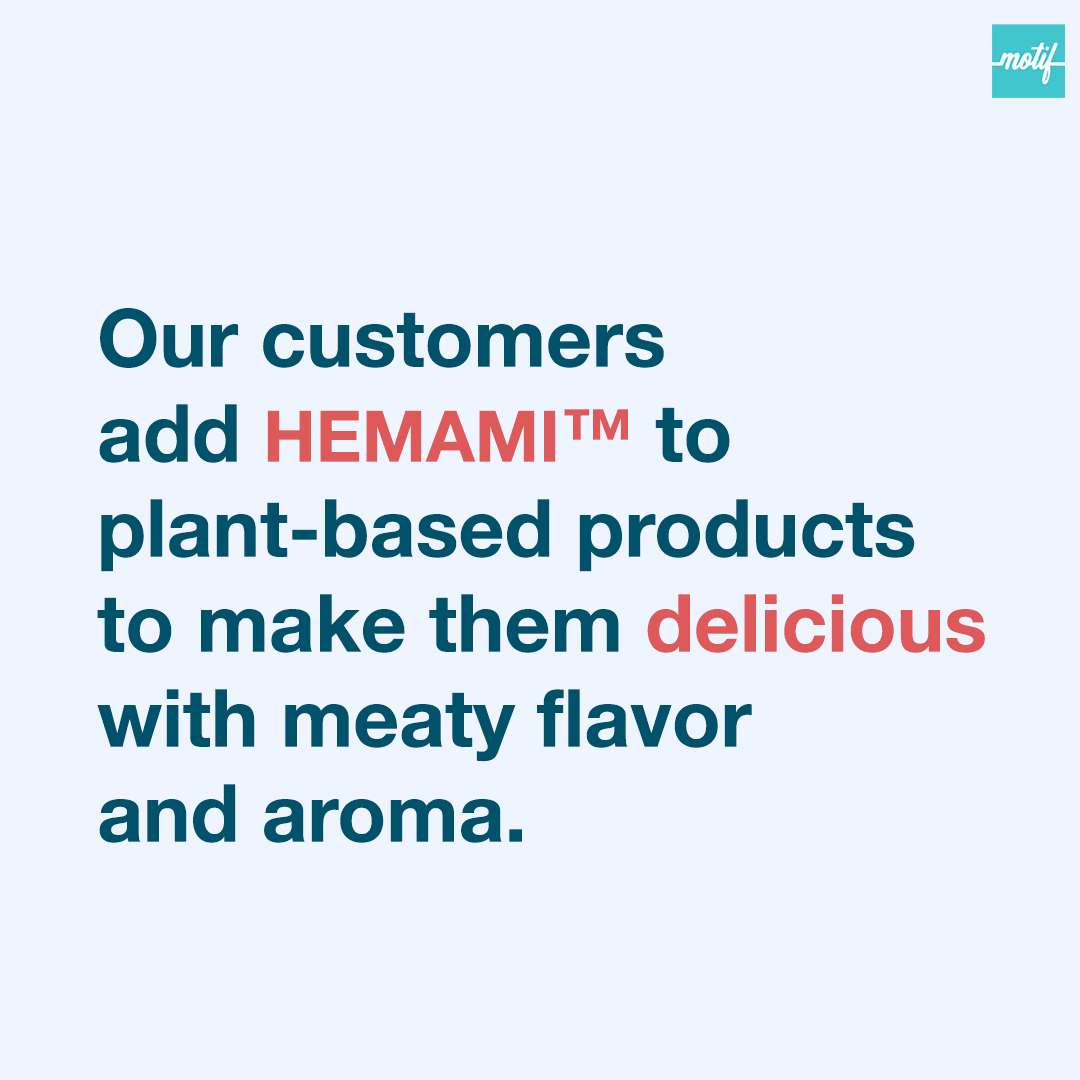Last June Motif unveiled new food technologies and consumer reactions to how they transformed the taste, flavor and texture of a plant-based burger. Now the food technology that astonished so many focus groups with its unique, mouth-watering flavor has a name: HEMAMI™.
HEMAMI™ is a low inclusion, high-impact food technology that brings a mouth-watering meaty flavor and aroma into meat-alternative products. It was developed by our experts to address a specific gap in plant-based foods using precision fermentation technology.
This approach is not only animal-free, but means HEMAMI™ can be sustainably produced through fermentation, a process used by humans for thousands of years to produce beer, bread and cheese.
Filling the Gaps
The journey of HEMAMI™ started with an in-depth listening exercise with consumers about what bothered them about plant-based food. Factors like taste, flavor, and texture deter two thirds of Americans from making a greater effort in adopting plant-based alternatives into their diet. Identifying these challenges and gaps between plant-based alternatives and meat products, such as the importance of a meaty, umami taste, gave us a starting point.
“Our team is very good at understanding the technology landscape. We analyze, what are the current ingredients and technology solutions available to solve consumer challenges? What gaps remain? Then we design our food technologies to bridge that gap,” says Dr. Dilek Uzunalioglu, head of food applications.
With the challenge before us thoroughly understood, we leveraged our strategic partnership with Ginkgo Bioworks to help design an ingredient and production method that would tick the boxes of taste, flavor, and sustainability.

Making HEMAMI™ a reality
Heme proteins bind iron and oxygen. They give meat its unique taste that can be difficult to replicate in plant-based food. Using Ginkgo’s extensive bioinformatics capabilities, we searched through thousands of candidate proteins, eventually landing upon – drumroll please – a muscle protein found in cows called myoglobin.

While it seems like a no-brainer, this protein can deliver heme as well as replicate the properties of muscle proteins that make up meat to help give that sought-after umami flavor.
The next challenge was producing HEMAMI™ sustainably without the use of animals. We relied on precision fermentation, which involves providing HEMAMI™ protein’s information to yeast. The yeast then goes through its natural fermentation process and produces the protein without the use of an animal.
The fermentation process has remained the same for centuries and is both safe and effective for ingredient production. This process also has a major advantage over traditional farming in terms of environmental sustainability. In 2019, agriculture was responsible for 10% of U.S. greenhouse gas emissions.
Plant-based food from precision fermentation also uses water and land more efficiently than animal-derived products. On average, animal proteins use 33 times more land than plant proteins and cause 20 times more greenhouse gas emissions.
“The concept is, using a single area or unit of water, you are able to produce a higher quantity of ingredients to feed people compared to traditional farming. Precision fermentation uses sustainable feedstocks, helping reduce greenhouse gas emissions,” says Michael Tai, head of bioprocess at Motif.
Looks good, tastes good
With a sustainable production method in hand, we then needed to find a way to incorporate HEMAMI™ effectively into plant-based foods. Our in-house experts brought HEMAMI™ into the lab to see how it best fits with plant-based food preparation.

“We took HEMAMI™ and evaluated it in our application lab to understand how we need to formulate it in terms of usage level, processing, overall interactions with other ingredients in different food applications including plant-based meat patties, grounds, sausages and nuggets. We designed food formulations to show how HEMAMI™ can improve taste, appearance and eating experience in various food forms” explains Dilek.

We also worked to develop the formulation with consumer feedback. It’s why we performed countless taste tests both at home and with consumer focus groups, resulting in a winning HEMAMI™ formula.
The future of food
The benefits of HEMAMI™ reach far beyond the addition of taste of plant-based foods. HEMAMI™ is naturally animal-free and fermentation is a step towards environmentally sustainable production in comparison to traditional farming methods. It’s also been acknowledged by the FDA as Generally Recognized as Safe (GRAS). We’re working hard towards the future of food production— and the potential seems limitless.
“You can pretty much produce any protein without the animal in a very pure manner. The HEMAMI™ protein we’re using right now; you cannot really purify it from meat to put in a plant-based burger. We’re not just looking at HEMAMI™, we’re looking at other functional proteins where we hope to find better alternatives to replace commonly used animal-derived proteins,” explains Dr. Philippe Prochasson, Motif’s head of synthetic biology.